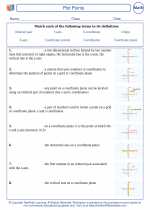Factoring
Factoring is the process of breaking down a mathematical expression into simpler parts. In the context of algebra, factoring involves finding the numbers or algebraic expressions that multiply together to give the original expression.
Types of Factoring
There are several methods for factoring algebraic expressions, including:
- Common Factor Factoring: This involves factoring out the greatest common factor from each term of the expression.
- Factoring by Grouping: This method is used when there are four terms in the expression, and involves grouping pairs of terms and factoring each pair separately.
- Factoring Trinomials: Trinomials are algebraic expressions with three terms. Factoring them involves finding two binomials that multiply to give the original trinomial.
- Difference of Squares: This technique is used to factor expressions that are the difference of two perfect squares.
- Factoring by Substitution: In some cases, substitution can be used to simplify an expression and make factoring easier.
Study Guide for Factoring
1. Common Factor Factoring:
To factor out the greatest common factor from an expression, follow these steps:
- Identify the common factor shared by all the terms.
- Divide each term by the common factor.
- Write the expression as the product of the common factor and the remaining terms.
2. Factoring by Grouping:
When factoring by grouping, remember to:
- Group the terms in pairs.
- Factor out the greatest common factor from each pair of terms.
- Factor out the common binomial factor from the resulting expressions.
3. Factoring Trinomials:
When factoring trinomials, look for two binomials of the form (x + a) and (x + b) such that the product of the binomials gives the original trinomial. Use methods such as trial and error, grouping, or the AC method to factor trinomials.
4. Difference of Squares:
Identify expressions of the form a2 - b2 and factor them into the product of two binomials: (a + b)(a - b).
5. Factoring by Substitution:
In some cases, substituting a variable or expression can simplify the original expression and make factoring easier. Look for opportunities to make a substitution that simplifies the expression before factoring.
.◂Math Worksheets and Study Guides Fifth Grade. Plot Points
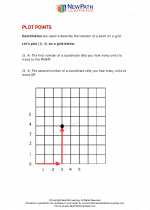
 Worksheet/Answer key
Worksheet/Answer key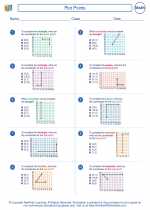
 Worksheet/Answer key
Worksheet/Answer key
 Worksheet/Answer key
Worksheet/Answer key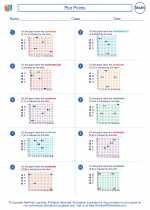
 Worksheet/Answer key
Worksheet/Answer key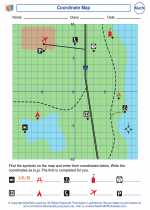
 Worksheet/Answer key
Worksheet/Answer key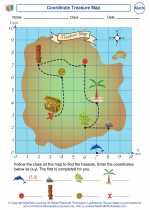
 Vocabulary/Answer key
Vocabulary/Answer key